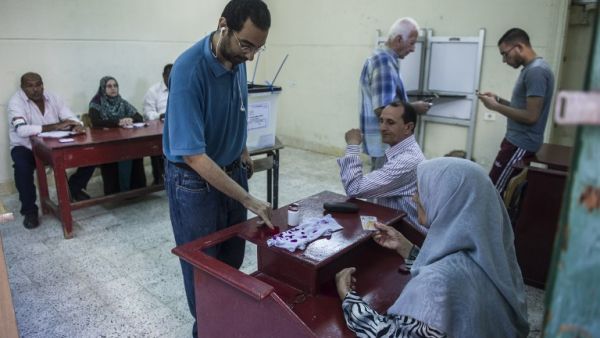Polling stations in half of Egypt's provinces opened Tuesday for two days of run-off ballots in the country's long-delayed parliamentary elections.
At stake are 222 seats out of 596 in the assembly, the first to be held under President Abdel-Fattah al-Sisi.
The former armed forces chief has been ruling by decree since his election in 2014, a year after he ousted Islamist president Mohammed Morsi in the wake of mass protests.
Al-Sisi loyalists in the For Love of Egypt alliance have already won all 60 seats contested under a party list system in this first round.
In Cairo's western Dokki district, no voters were to be seen outside polling stations as voting started at 9:00 am local time (7:00 am GMT).
The first round of voting last week was also marked by low turn-out, put at about 26.5 percent by the electoral commission.
Independent candidates are expected to dominate in the local seats being contested on Tuesday and Wednesday. Analysts say the resulting assembly is likely to be fractured but loyal to al-Sisi.
The centre-right Free Egyptians Party, founded by Christian tycoon Naguib Sawiris, is the best-placed party in the run-offs, with 65 remaining candidates.
In second place is the recently-formed Nation's Future party, formed by young supporters of al-Sisi and reportedly also backed by businessmen, with some 45 candidates.
The hardline Nour Party, the only Islamist party to back al-Sisi and run in the elections, has some 24 candidates.
Egypt's remaining provinces will vote in November and December.
The elections mark the final stage in a transition plan announced by al-Sisi in 2013 when, as army chief, he deposed Morsi.
Muslim Brotherhood leader Morsi, Egypt's first freely elected president, had defied mass protests calling for early elections, instead calling his own supporters onto the streets.
Egypt has been without a parliament since 2012, when the constitutional court struck down the Islamist victory in the polls that followed a popular uprising against dictator Hosny Mubarak the previous year.
By Pol O Gradaigh








